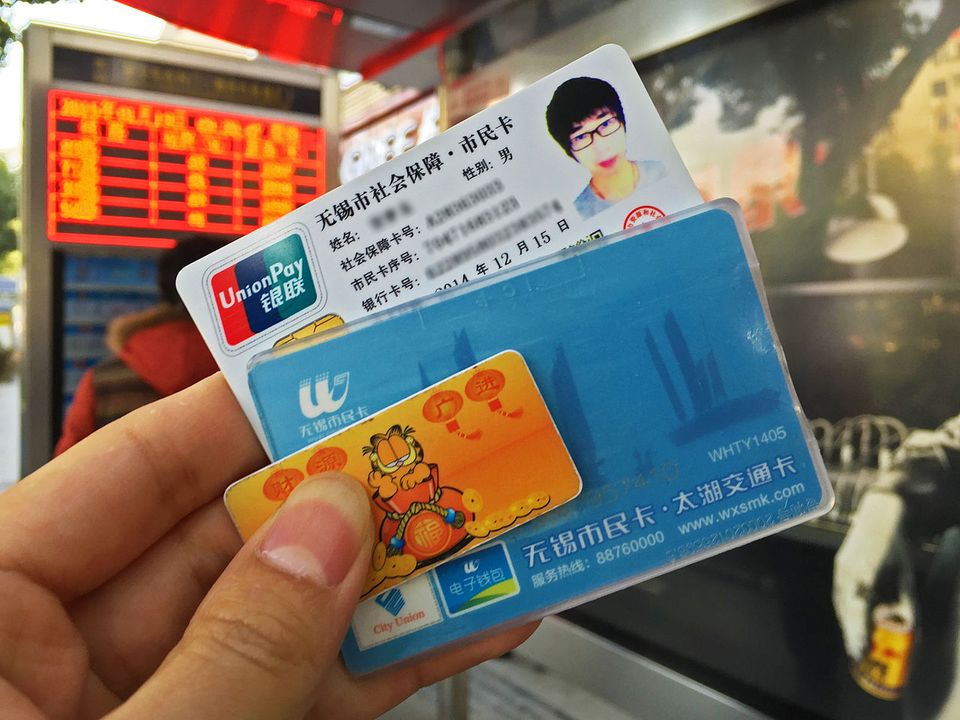Why (and how) China is tying social-media behavior to credit scores

As America struggles to keep tabs on consumer credit scores in the tumultuous wake of last year’s Equifax breach, China is preparing to flip the switch on a new type of credit score.
In 2020, Alibaba, Tencent, and Baidu, China’s most popular social networks, will be required to include all users in social-credit systems unique to their platforms. And each Chinese citizen using these networks will be given a credit score based on his or her online behavior. Scoring high will open financial doors; scoring low will slam them shut.
Some of the social-networks have already built in and launched social-credit systems, albeit on an opt-in basis for now. Alibaba’s Sesame Credit, which has often mistakenly been referred to as the name for the entire social credit system, assigns scores and tallies points based on how a consumer pays her bills and spends her money, but also on how she interacts with others online. And Tencent’s QQ messenger service uses its built-in social-credit system to publicly rate its users between 300 and 850 points in five categories: compliance, security, wealth, shopping, and social connections.
READ MORE ON CHINA AND CREDIT SCORES
New research explores how the Great Firewall of China works
‘State of Control’ explores harrowing consequences of Chinese surveillance
How to deal with Equifax and our ‘broken’ credit protection system
After Equifax breach, credit monitoring simply isn’t enough
How to keep tabs on the secret companies that know everything about you
The rewards for high scores are designed to encourage the behavior that China wants to see in its citizens, says Katika Kühnreich, a China expert who completed her masters at the University of Cologne. And conversely, the punishments for low scores harm them: Someone who has a low score, for example, might lose access to high-speed train tickets, or find business or personal loans rejected by lenders. As of February 2017, the Chinese Supreme Court has slapped travel bans on more than 6 million people with financial debt.
It’s all part of an effort to rate how trustworthy a consumer is—and make the process palatable by turning it into a game, Kühnreich says.
“The Chinese government doesn’t give you a lot of information on how it will look. But we can guess,” she says, “Look at China as an example of how gamification is used to influence and therefore control you,” adding that the problem isn’t limited to China. “I don’t see the influence and gamification of social media as a Chinese problem, but an international problem.”
“Look at China as an example of how gamification is used influence and therefore to control you.”—Katika Kühnreich, China expert
China’s social-credit systems have been compared to the “Nosedive” episode of the dystopian TV show Black Mirror, where ratings assigned by other consumers control every aspect of social and financial interaction. Social networks have been relying on game-style, reward-based interactions to keep users engaged for years. But depending on how successful China’s social-credit system is with its more than 730 million Internet users, other countries and social networks might look to it as a model for how to keep consumers’ online behavior in check.
Keeping social-credit systems ‘sincere’
The idea for creating some way to rate a Chinese citizen’s general “sincerity” or compliance with market-economy rules, such as paying bills on time (and with an authorized credit card), can be traced as far back as 2004, Rogier Creemers, a researcher specializing in Chinese law and governance at the Van Vollenhoven Institute at Leiden University, told CNBC. An outline of how a social-credit system would work first appeared in official state documents in 2014, he says.
“The system merely uses information the government already has on its citizens in a more coercive way,” he said.
Game developer Brianna Wu, who is running as a Democrat in Massachusetts’ 8th District against incumbent Steve Lynch, says China’s social-credit systems are a natural extension of how China has developed its Internet systems.
“From the beginning, [China] has censored [its] content online, and heavily regulated speech,” she says. Sometimes Chinese consumers rebel against the regulations and what they perceive as their lack of privacy, but Wu, one of the major targets by the Gamergate online-abuse campaign, says online interactions in China remain very different from those in the United States. “They’re not having extreme instability from speech online. We’re having a crisis with online bots, and online death threats.”
Wu, whose in-laws emigrated to the U.S. from China in the 1960s, notes that the ways in which China has developed its Internet use, and thus impacted its culture, has formed the underpinnings of its social-credit systems. Taken together, China’s 13 5-year-plans have allowed the country to control how it develops online.
“The U.S. doesn’t even have a one-year plan for the Internet,” she says. And the ramifications are serious: She believes that a social-credit system would have stopped Gamergate. “I feel they’re going to keep leapfrogging us because they have a long-term plan,” she says, “but I still would not get on board with it. It’s like putting Equifax in charge of how you get loans.”
